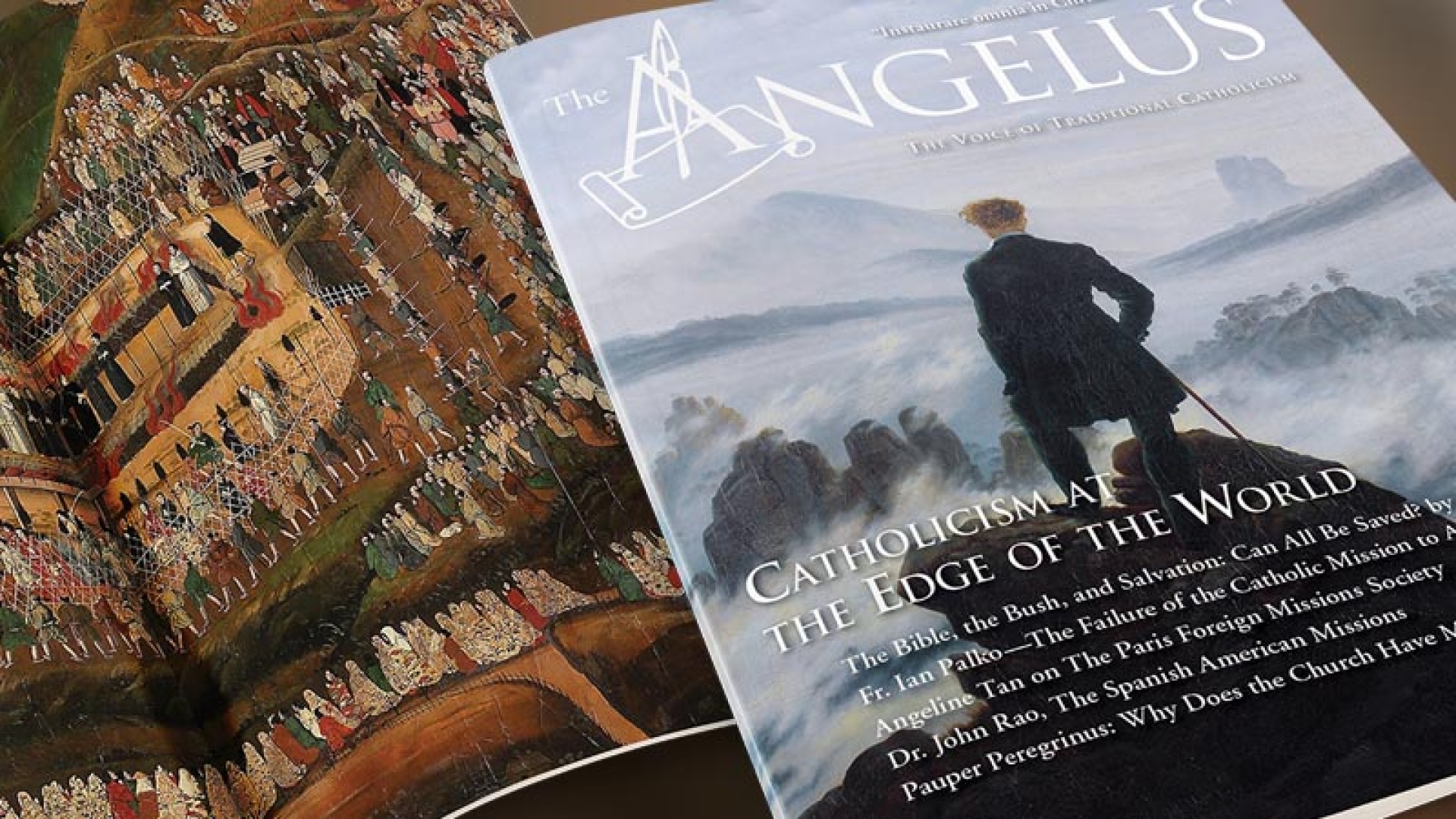
Just before Our Lord ascended into Heaven, He gave the Apostles a mission: “Go into the whole world and preach the Gospel to every creature” (Mk. 16:15). This was a mission to conquer the world for Christ.
Dear Reader:
To no other entity than His own Church has God given the command to teach the whole world. The command contains both a duty and a right: the duty to labor ceaselessly for the spread of the Gospel, being urged on by the charity of Christ (II Cor. 5:14); and the right of the Catholic Church to be heard because she sends forth the very ambassadors of Christ, “God as it were exhorting by them” (II Cor. 5:20).
Our own times have witnessed two ideologies that have usurped the universal role of the Church, claiming for themselves a worldwide mission for the benefit of mankind, a claim that has led them to seek to conquer the world for their own ideas.
The first of these is Freemasonry, a naturalistic system that has sought to create a paradise on earth through secular democracies that legitimize all forms of sin. Since its founding in 1717, Freemasonry has warred unceasingly against the Church, because the Church has a supernatural view of the end of man and established a multi-national alliance—Christendom—which incarnated its view in society. The Christian States which were an answer to the Apostolic mission given by Christ have now been destroyed and Freemasonry has refashioned the Christian world into its own image.
The second modern ideology with a self-imposed universal mission is Communism. Like Freemasonry, it seeks to create a paradise on earth. The means it employs, however, is not unbridled freedom but class warfare. Communism stirs up conflict wherever it can with the objective of eliminating all class distinction in society. It promises a classless society of perfect happiness at the end of the conflict, but that end has never been seen; Communism is forever stuck in a path of death and destruction.
In the face of these two powerful, godless systems, the mission of the Catholic Church remains, along with the mandate of God. She alone, not the rulers of this world, is empowered by the creator of this world to govern souls. This is why the SSPX sends her missionaries to the ends of the world. There are SSPX priests living in 36 countries, among which are New Zealand, Latvia, Chile, Kenya, and India. Besides these countries in which SSPX priests live, there are nearly as many which are visited by SSPX priests from time to time.
The world has changed greatly since the time of Our Lord, but His words are for all time: “Go into the whole world and preach the Gospel to every creature.”
Fr. John Fullerton
This Issue's Contents:
FEATURED:
The Bible, the Bush, and Salvation: Can All Be Saved?
Fr. Jonah Garno, SSPX
The Forgotten World: The Failure of the Catholic Mission to Aotearoa
Fr. Ian Palko, SSPX
The Paris Foreign Missions Society and Catholic Evangelization in Southeast Asia: A Brief Overview
Angeline Tan
CULTURE:
History: The Splendors and Miseries of the Spanish American Missions
John Rao, D.Phil. Oxon.
Art: The Miraculous Features of the Image of Our Lady of Guadalupe
Prof. David Clayton
Review: Discovering the Wonders of Femininity with Fr. Karl Stehlin’s "The Dignity, Mission and Vocation of Women"
Amanda Evinger
FAITH:
Interview: My Path to Tradition
Steven Farley
Theological Studies: Why Does the Church Have Missionaries?
Pauper Peregrinus
Liturgical Studies: Thematic Unity in the Final Sundays after Pentecost and its Disappearance in the Liturgical Reforms
Matthew Hazell
From the Archbishop: The Problematic Nature of the Schemata of Vatican II
Archbishop Marcel Lefebvre
THE LAST WORD
- Fr. David Sherry, SSPX
How to Read This Issue:
Subscribe >>
Buy Individual Issues >>
...or download a PDF Preview Below
